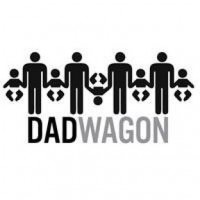We’re converting.
I think. I mean, I don’t know where I’m going to get a baptismal record for my son, who was never baptized. Nor am I confident that a boy who is really not that excited about the sight of blood will be able to concentrate in a classroom that has a gigantic statue of suffering, blood-soaked Christ in it.
And what will I tell him about the other three-quarters of his heritage, the Jews and Dutch Reformed Church-goers in my family, the Buddhists on my wife’s side? Her mother is the only Catholic anywhere in the family tree, and yet here we are: very close to putting the boy in Church of Bleeding Jesus of the Ascendant Virgin (or whatever it’s called at the church down the street) preschool.
We are doing this because, as much as I might make fun of the Doloroso names that Catholics love to give their institutions, they seem to offer the only halfway affordable preschool education in Manhattan. So after a quick surgical reattachment of his foreskin, we will be shipping the boy off to be beaten by nuns for the next school year.
We thought we would be able to scrape by with what qualifies as a moderately priced private preschool in the Upper West Side: my son’s current $19,000 a year school. But we could not. Every penny of that has ended up on credit cards, taking from the kids’ college fund and, thanks to the compounding wonders of interest, taking from their college funds of the future. We went in to tell the Director of Admissions, a smooth-voiced southerner who had always been kind to us, and said that we were taking him out of school next year because we couldn’t afford it. She smiled faintly, shook her head and said, “I honestly don’t know how young families do it anymore.”
That answer did not help us much. We are not a young family. My wife is a doctor, and I am a high-rolling dadblogger. OK, even without much income from me, we still should be able to afford to put our kid in preschool. Not that I can single my son’s school out. There are dozens of schools, Montessoris or Progressive Preschools or little boutique-y schools like my daughter went to last year that talk about building a thriving, loving, whole community, and then charge tuitions that ensure that they will only ever educate the children of stockbrokers with the occasional scholarship child thrown awkwardly into the mix. The rest of us are just left to be parboiled by the price.
There is Universal Pre-K: for two years now, in different forms, DadWagon has been pointing out the somewhat obvious (but important!) point that Universal Does not Mean Universal. The only thing I have to add to that conversation is that all the private schools—including the ones that come with rosary beads—cunningly require ALL YOUR MONEY and a commitment well before the Universal Pre-K application process with NYC public schools even begins.
Anyhow, dear readers, I would admit that this is just a Manhattan folly, and that we deserve these strange collection of choices because we have chosen to live in a very expensive city. But the bad news about pre-kindergarten is not just here.
From a new AP report on the importance—and scarcity—of pre-kindergarten around America:
Kids from low-income families who start kindergarten without first attending a quality education program enter school an estimated 18 months behind their peers. Many never catch up, and research shows they are more likely to need special education services and to drop out. Kids in families with higher incomes also can benefit from early education, research shows.
Yet, roughly a quarter of the nation’s 4-year-olds and more than half of 3-year-olds attend no preschool, either public or private. Families who earn about $40,000 to $50,000 annually face the greatest difficulties because they make too much to quality for many publicly funded programs, but can’t afford private ones, said Steven Barnett, director of the National Institute for Early Education Research at Rutgers University.
Put a one in front of those annual earnings, and you still are stuck, unable to pay, ineligible for free.
So tell me again, GOP candidates in the debates, what is so wrong with Europe?
 It’s possible that some of you have noticed a certain downturn in the number of DadWagon posts in recent months. I want to assure you that while my name hasn’t appeared much on the site, the real culprit here is in fact Nathan. I’ve been writing lots of things—poignant, amusing, wry—and he just fucking deletes them.
It’s possible that some of you have noticed a certain downturn in the number of DadWagon posts in recent months. I want to assure you that while my name hasn’t appeared much on the site, the real culprit here is in fact Nathan. I’ve been writing lots of things—poignant, amusing, wry—and he just fucking deletes them.

